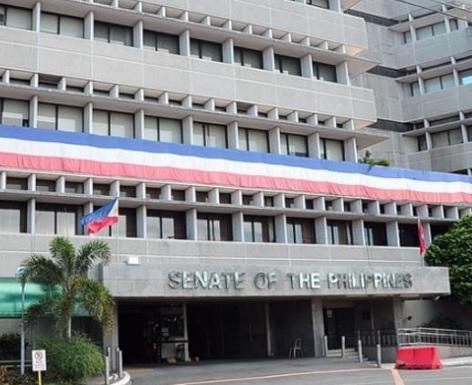
The Senate foreign relations committee on Friday terminated its hearing on the 1961 Convention on the Reduction of Statelessness and endorsed it to the plenary for deliberations.
This came after representatives from the government, private sector, and non-governmental organizations expressed full support to the multilateral treaty.
“Upon the advice of our committee secretary, the committee chairman now terminates the hearing on the 1961 Convention on the Reduction of Statelessness,” Senate foreign relations chairman Aquilino Pimentel III said.
A stateless person is defined as one who is not considered as a national by any state under the operation of its law, according to the 1954 Convention Relating to the Status of Stateless persons.
“In other words, a person is born, but not recognized by any state and as a consequence thereof does not enjoy his or her civil or political and even basic human rights,” Pimenel said in his opening statement.
Based on the United Nations High Commissioner for refugees’ mid-year trends for 2021, there are 4.3 million stateless persons around the world.
However, this figure only accounts for 94 countries with available data.
“The Institute for Statelessness and Inclusion estimates that there are about 15 million stateless people around the world, approximately one-third of this figure are children where stateless children are born every 10 minutes or 144 stateless children being born every day,” Pimentel said.
“Today’s hearing is important as the Senate starts the process to concur with the instrument of accession to the 1961 Convention,” he added.
The treaty was signed by President Rodrigo Duterte last August 3, 2021 or 60 years after the birth of the convention, Pimentel said.
He noted that the Philippines has a “robust policy framework on this issue” as it was the first Southeast Asian country that is a state-party to the 1954 Convention Relating to the Status of the Stateless person.
The country also has a national action plan to end statelessness and this was also included in the Philippine Development Plan for 2017 to 2022.
As of June 2021, there are 13 stateless persons in the Philippines and 113 pending applications, according to State Counsel Melvin Suarez from the Department of Justice (DOJ).
Suarez said the Philippine government has already identified populations which are at risk of statelessness. These are foundlings, persons of Indonesian descent in Southern Philippines, Sama Bajau, unregistered children, Children of Filipino descent in migratory settings, and persons of Japanese descent.
The DOJ has assessed that the Philippines has existing legal frameworks that are consistent with the provisions of the 1961 Statelessness Convention.
Should there be gaps or gray areas in the Philippine nationality laws, these could be further enhanced to align with the treaty, Suarez said.
He added that these enhancements could be undertaken through an act of Congress, notwithstanding the current efforts to align the country’s legal framework as a parallel endeavor to accede to the 1961 Statelessness Convention.
Apart from the DOJ, the Department of Foreign Affairs, and the Department of Social Welfare and Development supported the Senate’s concurrence with the 1961 Statelessness Convention.—AOL, GMA News

0 Comments